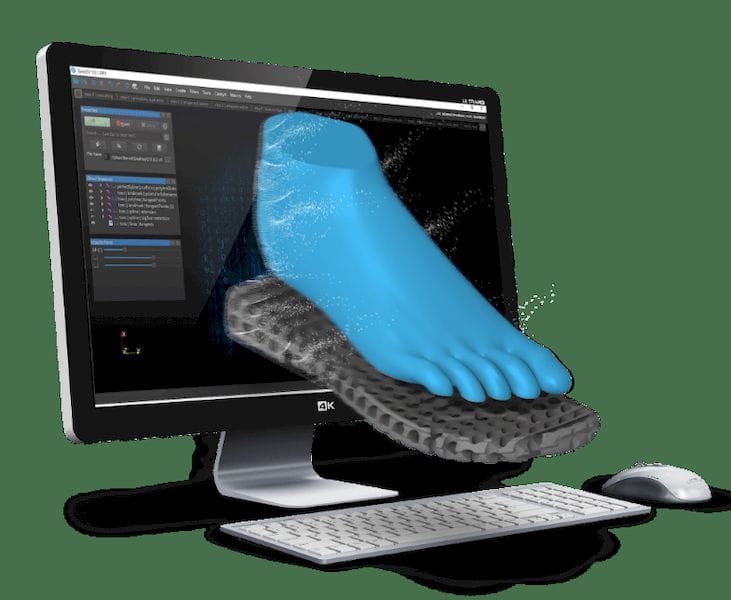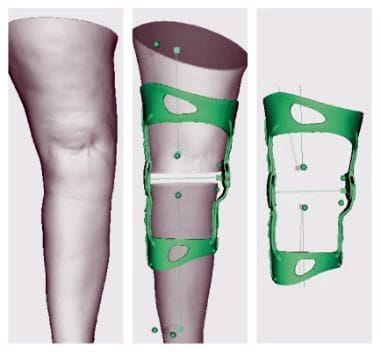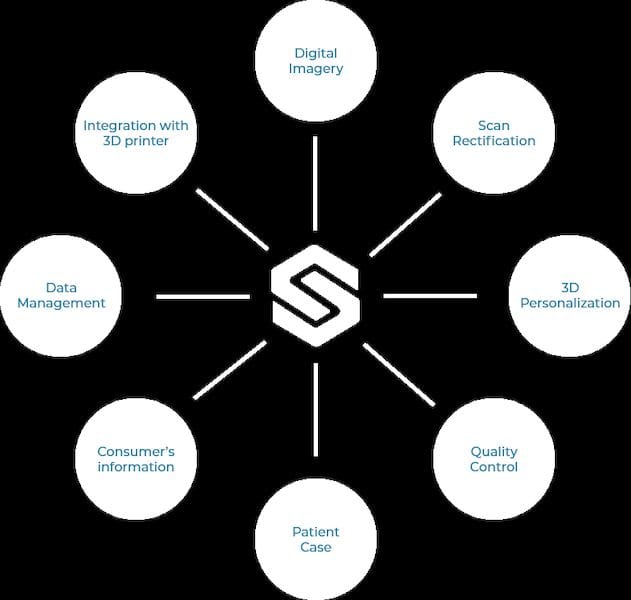
Montreal-based Caboma has developed some intriguing software that could lead to more widespread personalized 3D printed items.
Personalized items is the nirvana sought by many in 3D printing, as it is the most logical use of the technology. A technology that can produce a unique item on each production run is something the world hasn’t seen since the days of hand-made manufacturing.
Mass-market assembly line production has dominated the world for over a century, but with it comes a cost: every item is identical.
For plenty of items this is a totally acceptable outcome: how many different generic bricks do you need? Do you need a unique panel for your automobile door repair, or do you want the part as originally designed?
But there is another space where personalization is literally the goal: body-worn items.
By definition, virtually all individuals on the planet (and off, I suppose) are different and have slightly differing shapes.
On these unique body shapes we typically apply identical mass-produced items of clothing or function, sometimes approximated by “sizes”. The truth is almost everything we wear or interact with is not the optimum size and shape. We live with that and assume it is how the world works.
But it isn’t.
3D printing and other automated manufacturing systems offer the possibility to literally create unique items to optimally match every situation and every person’s needs, at least in theory.
But there’s a rather huge problem to overcome first. All of these making technologies are digital. That is to say, they require a precise 3D digital model of the desired shape to guide the manufacturing.
Where does that custom 3D model come from? Who makes it? If we had to produce a million unique perfectly fitting shirts, would we need to produce a million 3D shirt models?
Yes. We do.
That is an enormous challenge, as 3D models are typically created today by humans using CAD software, and paid by the hour. Thus it is generally financially infeasible to consider this process as described.

But it may be a different story if there were software to assist in the customization process, and that’s exactly what Caboma seems to be doing. Their SpecifX software accepts a 3D model and can customize it by automatically integrating it with other data. They say:
Once you’ve designed your product in any CAD software, SpecifX takes the 3D model and instantly personalize it to your consumers’ specifications.
Create thousands of personalized parts every week. Generation of the 3D personalized models can be fully automated if desired.
Use one intuitive solution to personalize your product. From scan rectification, to manufacturing, manage all steps in SpecifX
SpecifX, (which by the way is a terrific name for a product that performs this function) appears to use a workflow paradigm in which you can load a variety of data for integration with an existing 3D CAD model. They suggest you could include such data as: Product requirements, Imagery, Consumer’s preferences, Medical diagnostic, Quality control and more.

There’s more. SpecifX also integrates with production processes and appears to be able to process streams of requests in a scalable manner, right up to the actual production of the items.
I believe this is an important capability because it enables companies that otherwise do not have the necessary expertise to develop and deploy 3D CAD integration. Remember, those with expertise to run a business to deliver a consumer product, for example, are not necessarily 3D CAD development experts. SpecifX could make launching a custom product business far easier.
Have an idea for a customized product using 3D printing technology? You might need Caboma’s SpecifX.
Via Caboma

